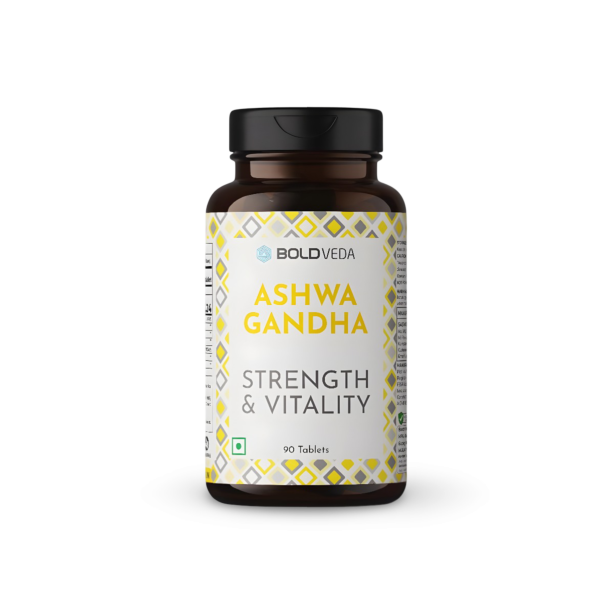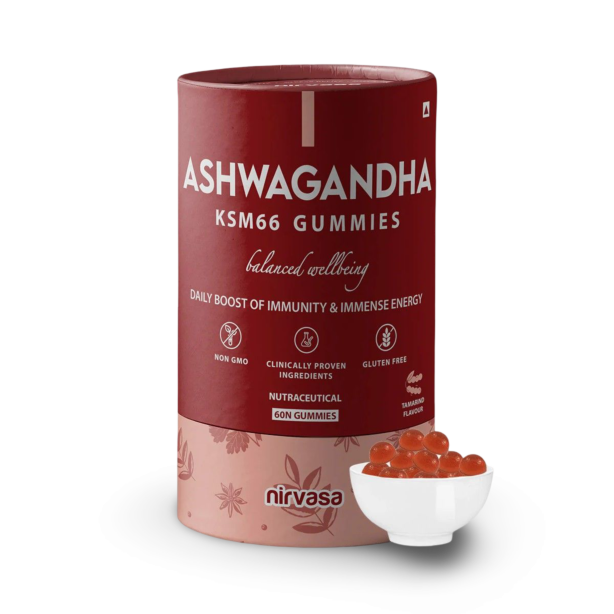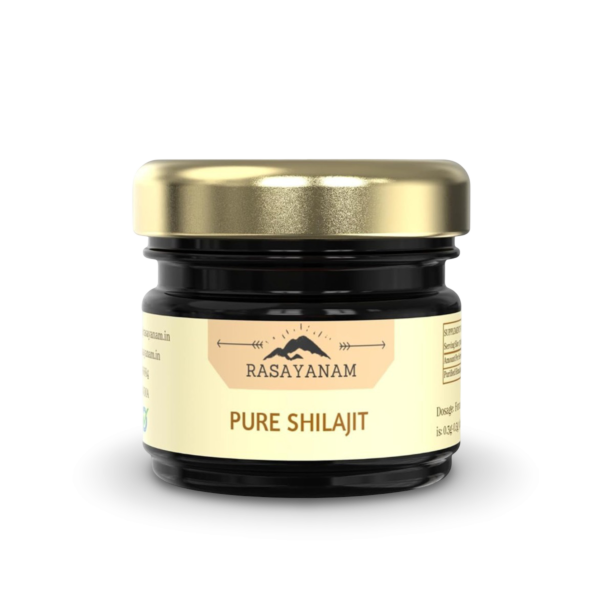Ashwagandha is regarded as a powerful herb with a rich history in traditional medicine. Today, it is rapidly gaining recognition as a natural remedy for improving brain function. A clinical trial conducted by the University of Colorado in the US in 2020 reported that this herb can heighten mental clarity and sleep quality.
Both men and women are further adopting it to balance hormonal levels in the body. But what else can Ashwagandha do to support overall wellness, and how safe is it to use?
In this article, you will read in detail about this medicinal herb, its key benefits, and how to properly use it for good health. We will also discuss its potential side effects and precautions for safe consumption.
What is Ashwagandha?
Ashwagandha, also known as Withania Somnifera, is an evergreen shrub. It is native to India, where it got its name, and parts of Asia. It has been used for thousands of years in ayurvedic medicine, an ancient holistic system of India. It is categorized as an adaptogen. This indicates that it can help the body manage stress better. Moreover, its roots and leaves contain withanolide, an active compound. Withanolide is known to have brain-protective, antioxidant, and anti-inflammatory properties. These properties strengthen cognitive (mental processes) health, lower inflammation, and enhance body management in response to stress. For these reasons, taking an Ashwagandha supplement is considered beneficial for overall well-being.
Save up to 90% on your medicine bills

Boldveda Ashwagandha Tablets

Kapiva Ashwagandha Gold Capsules

Nirvasa Ashwagandha KSM66 Gummies

Rasayanam Pure Shilajit Resin
Benefits of Ashwagandha
Ashwagandha has numerous health benefits. It supports the body, mind, and long-term health. Although its effects can vary from individual to individual, studies highlight its positive impact on hormonal support and enhancing energy.
This ayurvedic supplement can also control Anxiety. According to research published by Nutrition and Metabolism in 2025, it has stress-relieving properties and can trigger a beneficial increase in hormonal levels. Such findings suggest that this herb can support body functions and overall well-being.
Given below are its key benefits:
- Improvement in male fertility: Some clinical studies have reported that it can enhance sperm count and quality. This is how it can support male fertility.
- Lower stress: It is known to decrease cortisol levels. Cortisol is the core stress hormone of the body. Reduced stress helps perform better in both relationships and daily life.
- Increase stamina: It can help increase energy levels and enhance physical endurance naturally.
- Increase testosterone levels: It can help men with low testosterone levels. Regular, monitored use can increase testosterone, supporting reproductive health, energy, and confidence.
- Support muscle growth: Ashwagandha is known to improve endurance and strength. Therefore, it proves highly beneficial for fitness or sports enthusiasts.
- Improvement in sleep quality: Many women have reported a more restful, deeper sleep after regular intake of this natural remedy.
- Strengthen immunity: It supports the body in building resilience against diseases by strengthening immune functions.
- Hormonal management in women: This herbal supplement is known to ease Menopause symptoms and regulate the menstrual cycle in women.
How to use Ashwagandha
Ashwagandha is available in a variety of forms. Therefore, buy the one that works best for you. Each form has different dose recommendations. Always check labels and consult a doctor for an accurate dose. The following are the available forms and their general dose guidelines:
- Capsules or pills: Capsule or pill form is convenient for consistent dosing and daily intake. Pills can be taken with food. It helps in better absorption of the active ingredients. According to a study, most individuals are well-suited for a 300-600 mg capsule containing 5% withanolides.
- Gummies: Gummies can be a better option for those who dislike swallowing pills and find the powder form’s taste unpleasant. They are chewable with added sugar and flavor. Generally, taking 1-2 gummies a day is considered safe.
- Powder: The powder form usually contains the extract of leaf, dried root, or both. It is widely taken with milk, clarified butter (ghee), honey, smoothies, or water. 1 teaspoon of Ashwagandha powder a day is a safe intake. If the taste and form suit well, the amount can be gradually increased.
- Tea: The tea form can be prepared by soaking its capsules or powder in hot water. Drinking 1-2 cups a day is considered safe. It has calming, relaxing effects.
- Liquid extract: Since it’s a concentrated form, the body absorbs it quickly, offering faster effects. Dosages vary widely based on the brand. Most label instructions suggest a 1 ml dose, diluted in juice or water, taken 2–3 times daily.
Side effects of Ashwagandha
Ashwagandha is usually safe when used appropriately and in a recommended dosage. However, some can experience side effects, especially when taking a high dose. High doses are not suitable for every body type. Have a look at potential effects:
- Drowsiness or sedative effects: Excessive sleepiness can occur, slowing daily activities.
- Nausea: Some can experience mild nausea, particularly with a sensitive stomach or high doses.
- Digestive issues: This herb can cause bloating, gas, Diarrhea, or stomach upset.
- Low blood sugar or blood pressure: Can result in fainting or dizziness due to changes in blood sugar levels.
These effects are common, temporary, and usually subside as the body adjusts. However, in rare cases, serious effects like allergic reactions or liver injury may occur and require immediate medical attention.
Precautions for Ashwagandha use
Before using this holistic wellness herb, it is essential to consider the following precautions to ensure safe usage:
- Try beginning the use with a low dose. It provides time to observe the body’s reaction.
- In case of autoimmune diseases or a history of liver conditions, it is better to consult a medical professional first.
- Its safety profile is unknown for breastfeeding or pregnancy. So better be on the safe side and avoid use unless a doctor prescribes it.
- It has interactions with certain medications. Therefore, individuals with health conditions, such as Diabetes or High Blood Pressure, particularly those taking medicines, should consult a doctor first.
- For long-term use, medical supervision is advised.
Conclusion
Ashwagandha is a versatile herb with a long history in Ayurveda, the traditional Indian system of medicine. For years, it has been valued for boosting energy, bringing calmness, and supporting hormonal balance in both men and women.
Today, this herbal remedy is available in many forms, such as gummies, powder, capsules, or tea. You can choose what works best for your body and lifestyle. Like any other medicinal herb, it may cause mild side effects such as nausea or drowsiness, which often subside on their own.
If these don’t go away, it’s best to check with the doctor. You should also be mindful of precautions, such as possible interactions with other medications and starting with a lower dose. Following these steps will help you use this herb safely and enjoy its full benefits.

Frequently Asked Questions
Is Ashwagandha a happy pill?
No, Ashwagandha is not a happy pill in the sense that it does not trigger immediate emotions of happiness or euphoria. Instead, it functions gradually as an adaptogen to help you manage stress. It improves mood, lowers anxiety, and offers emotional calm.
How fast does Ashwagandha work?
Ashwagandha generally shows its effect after 2-4 weeks of regular supplementation. Some individuals can experience initial benefits, such as mild improvement in sleep quality and decreased stress, within the first few days. However, it will take a few weeks for more significant results, like increased energy.
Can I take Ashwagandha before bed?
Yes, you can take Ashwagandha before bed as it is known to enhance sleep quality. Many studies have reported that it helps you fall asleep faster and lowers nighttime awakenings. It also has calming effects that enable relaxation, making sleeping easier.
How long does Ashwagandha stay in your system?
Water-soluble compounds of Ashwagandha stay in your system for 2-3 days, whereas fat-soluble components can stay up to 1 month. The duration Ashwagandha remains in the body ultimately depends on your metabolism, dosage, and overall health.
When referencing outside resources, GoodrxMedicine always provides full citations. To learn more about the measures we use to maintain the quality of our content, please review our Content Information Policy.











